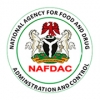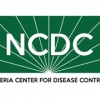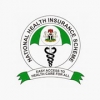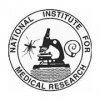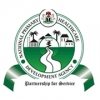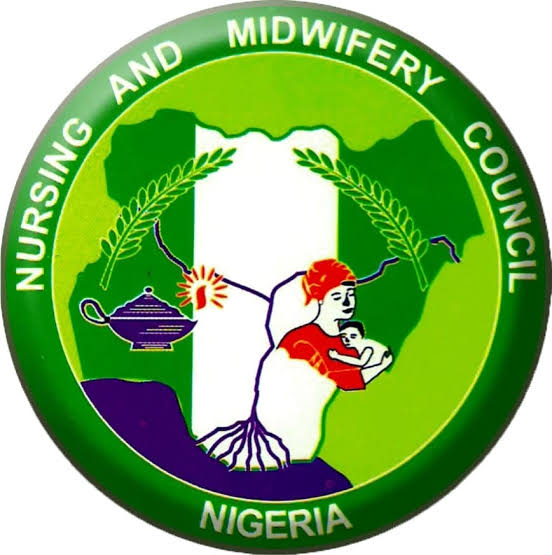RESPONSE OF THE HONOURABLE MINISTER OF STATE, HEALTH DURING THE PTF BRIEFING ON THURSDAY, 25TH JUNE, 2020
On home-grown solutions to COVID-19:
“Concerning the question about the possibility of home-solutions to COVID-19, particularly having had the Madagascar experience, the Honourable Minister of State, Health explained that in the absence of vaccines which we were told may not be ready till 2021, there are efforts from Nigeria particularly through the Federal Ministry of Health and looking at what we call the TCAM, the Traditional, Complimentary and Alternative Medicine.
You will recall that we did say at this forum sometime ago that we had a virtual conference with the Traditional Herbal Practitioners and it was a robust engagement where all those who had remedies were asked to come forward to present such remedies. Nineteen of them who participated came up with their remedies which we have since passed on to NAFDAC. In accessing the efficacies or otherwise of the remedies, the first port of call is NAFDAC and what NAFDAC does essentially is to determine the safety of the product, if it is fit for consumption. That is the first and fundamental thing to establish and it's just the first step.
When that is done, the remedy is listed and will then pass through some other levels such as the National Institute of Pharmaceutical Research and Development (NIPRD) and while this is going on, you also get the Nigerian Institute of Medical Research involved then we move on to the clinical trials because the fact that a remedy is fit for consumption does not say that such remedy has efficacy. There are two different things: Fit for consumption, or an ailment today. If somebody draws up a bottle of water and lays claim to it, NAFDAC will only first determine that this water is fit for consumption and will not be harmful if you drink it. That however does not mean that the water will cure your ailment. It is when it is established that it can cure your ailment that we can now talk of efficacy. That's the fundamental thing. Having said that, it's a process because it's a new remedy that is unknown in terms of what it is capable of doing.
It will need to go through clinical trials which have different phases and because it's something new, you'll need to establish through volunteers. The ideal thing you'll do is animal studies because if an animal dies it’s painful but not when a human being dies. That is why oftentimes we have to do the clinical trials on animals and then you can graduate it if you feel reasonably comfortable and in so doing, you get the volunteers which are a whole long process because you need to explain what you're doing to these volunteers. We cannot just take these remedies and start applying them on patients. No it's not done like that because there's an international protocol for all these things. You need to explain to the patient that this is a new product, a new remedy or a claimed remedy which you want to apply and that if you're willing to be part of it, please signify, and they will be made to sign so that God forbid, if something happens both sides will be covered. It is not just a matter of trying it out on one, two, but you have to try on a large number of volunteers, then you know from there if you're able to establish some efficacy maybe in terms of reduction of symptoms or time spent in hospital and the nature of medicine, if a patient came in with fever and that remedy is able to lower the fever, then of course you'll mark that. If a person is having headache and it is able to abort that, you note it, but this does not mean that at that time you start applying it. No, you will still have to measure whether there are side effects which you have to measure over time. You need to establish them because a drop in efficacy yet with very inefficacious side effects.
As a clinician, if what we call therapeutic advantages outweigh the side effects, these are processes and we need to say there are no short cuts. It's a long process which we must establish. There is also what we call the statistical significance. Whatever you're getting, is it significant, is it such that can be projected into the larger population? These are various things that you want to know. In medical history, some of you who have probably heard of the kind of drug Thalidomide in those days which was being used as a wonder drug, as sleeping drugs to calm people but along the line it was discovered that the births of deformed babies were as a result of use of Thalidomide.”
On timeline for adoption of the herbal remedy from Madagascar:
The Minister of State, Health said that he can't give a timeline because of all the processes and because “the President insisted that it's the right thing to do: That must go through our own procedures and processes. The last I heard this morning was that NAFDAC has done its own bit and the result will be forwarded to the Federal Ministry of Health maybe by tomorrow and will be passed on to other agencies who will take over from there.”
On the issue of Basic Healthcare Provision Fund (BHCPF):
“We're trying to address that issue and we heard it also had some issues with the National Assembly in terms of application and we needed to ensure that we keep within the ambit of the law, the BHCPF as provided in the National Health Act and as rightly said and is one of the things that will help us in the various things we're trying to do in terms of putting a base national emergency services and all that. Of course it's also something that will help us even in the management of a pandemic like this so it's one of the positions of the law that will help us to do better.”
On who is responsible for setting up testing centres?
“The role of the PTF and Federal Government is to support the States, so our collaboration with the States is with a view to supporting them in what they do. That’s why you see some of the States that already have PCR testing laboratory and some have expert machines and all.
So what the NCDC does under the Federal Ministry of Health is to go there and support them to put these things in place by way of ensuring that all the necessary protocols with respect to infection prevention and control; the proper personnel and issues of bio safety and bio security are all fixed and all issues are addressed. That's what the NCDC does under the FMOH but we don't go and put it there, but of course if you have the private sector, they might come in to assist in this regard but our own at the centre that is, the FMOH and the PTF is to support and collaborate with the States,”
On Cost of managing COVID-19 Patient:
"This is difficult to say for various reasons because COVID-19 cases are not being managed at the same centre. Some of them are being managed at the level of the Teaching Hospitals, some at the level of Federal Medical Centres and some at the level of General Hospitals in the States. These centres if they were to charge fees are not the same, just as we have COVID-19 patients being managed in some private hospitals that have been so designated and properly assigned to do that, so it will not be the same. For any other patient, once the environment like, if you go to a five star hotel or a three star hotel cannot be the same, you'll not pay the same fees because the fees that will be charged usually such as bed fees per day, services ranging from nursing fees, feeding, laboratory services from the basic full blood count, chest xray, particularly the Covid tests that comes in with one of the basic things we have to do, the chest x-ray, the scan and we have so many other things we have to do so that's why it will be difficult and some of these tests are not carried out just once but will be serialized. You may have to check the full blood count every other day depending on what you're seeing. You may have to repeat your chest xray if there are changes going on in the chest that you want to follow up or do a scan and again where the patient has comorbidity and comes in diagnosed as COVID-19 but the patient also has a cardiac condition, maybe heart failure or renal issue or some other things. So all these have to be monitored as well that's why it is extremely difficult to tell you the cost of managing a COVID-19 patient. It depends on where the patient is being managed and what the investigations are and what personnel used. How do you cost the services of consultants since you may have what is called multi-disciplinary approach where so many consultants in different specialties are coming to examine a patient and offer opinion depending on what. You may have a patient on ventilator or you just need oxygen concentrator to deliver oxygen to that person, how do we cost all that? So it's a very difficult thing to say."
On phone App that can give COVID-19 exposure notification:
"The first thing to say is that in this present administration under President Muhammadu Buhari you will recall that the administration renamed the Ministry of Communication as Communication and Digital Economy. We're in the digital age and the indication of that is that the entire world is going digital. There are so many things that we now do online or through digital interventions so that is an app based on certain information supplied and can reasonably give you what your risks are. I remember the National Coordinator, Dr. Aliyu once told me that he's always checking his risk exposure and at times it's so high. Well it's high for everyone of us on this side because of the places we go in the course of duty and all that. Having said that, it is important to say that if the App even exists, if you don't download it you can't make use of it. In essence I'm saying you must know what is there on your handset. Studies have shown that to the average person it doesn't matter how sophisticated, don't forget these phones are called smart phones because of what they can do. A smart phone can do virtually anything depending on how savvy the owner is in terms of technology and all that. It has been established that not up to 30% of functions in any smart phones are usually used by people because you can't give what you don't have; if you don't even know what to do to start with. So it's a matter of education and exposure. Then also the issue of "buy me credit", it's going to burn your credit and data so it does have a cost attached to it for the user. So that is also there but it is a good one because it helps you to know what your risk exposure is based on information that is available. So, in essence I'm saying that good as it is, I think the owners of that App must have fed the right information on it before you can really download and make it useful to you. I hope the National Coordinator may like to speak more on that."
On budget and funding:
"We have our budget in the Federal Ministry of Health and depending on what we present before the National Assembly and of course depending on how much is made available to us, we'll have to manage it within the ambit of all the services that we render in the full administration of health; but definitely in terms of funding in the national budget and of course when we have issues like this which is a public health issue, of course you know that we've been having some support from so many organizations: World Health Organisation (WHO), European Union (EU), United Nations (UN) and others. All these, of course we have private agencies and our development partners and we have International NGOs and also the local ones like Dangote, so many of them. They choose a lot of public health issues which they support in their own way and I sieze this opportunity to thank all of them. Thank you very much."
Compiled by Eunice Akro.
For: Olujimi Oyetomi, Director, Information, Media & Public Relations.
